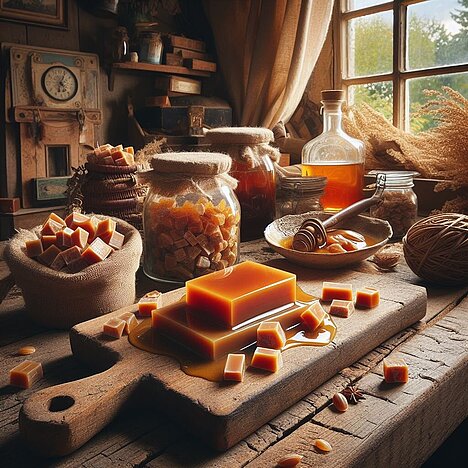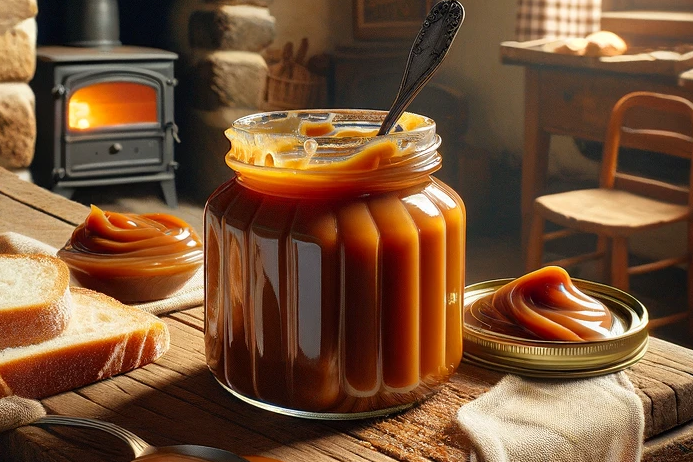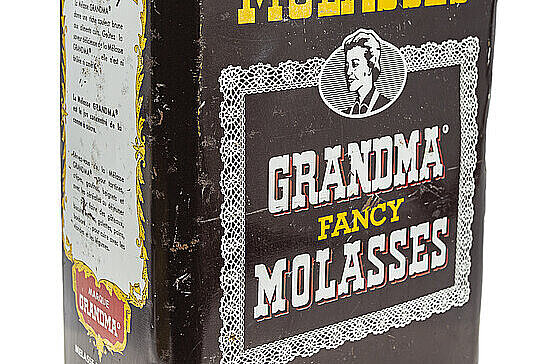Butterscotch

Butterscotch, that golden, buttery sweet that evokes childhood memories and enhances desserts, may be a delicious treat for humans. But what about our four-legged friends? Is it safe to treat them to a piece of this sweet temptation, or are there risks associated with butterscotch that dog owners should be aware of and avoid? In this article, we explore the world of butterscotch from a dog nutrition perspective, analyzing its ingredients and discussing the potential pros and cons of feeding it to dogs.
What is butterscotch?
Butterscotch is a type of candy made primarily from brown sugar and butter. Some recipes may also include cream, vanilla and salt to enhance the flavor and texture. The mixture is cooked until it reaches a certain temperature and then cooled to achieve a soft, sticky texture or a harder, crunchier consistency. While butterscotch may be a harmless treat for humans, it's important to understand the specific needs and health limitations of our dogs before sharing such foods.
Benefits of butterscotch for dogs
Basically, butterscotch offers no nutritional benefits for dogs. The main ingredients - sugar and butter - are not necessary in a dog's diet and can lead to health problems if consumed in excess. Therefore, there are no direct benefits of butterscotch for dogs and it is advisable to keep it out of their diet.
Disadvantages and risks of butterscotch for dogs
High sugar and fat content
Butterscotch contains high amounts of sugar and fat, which can be problematic for dogs. Excessive sugar consumption can lead to weight gain, dental problems and, in the worst case, diabetes. High-fat foods can lead to digestive problems, obesity and pancreatitis in dogs.
Xylitol danger
Some butterscotch products may contain xylitol, a sugar substitute that is extremely toxic to dogs. Even small amounts of xylitol can lead to a rapid insulin spike that can cause hypoglycemia (a dangerously low blood sugar level), liver failure and even death.
Lactose intolerance
Many dogs are lactose intolerant and cannot digest dairy products such as butter or cream, which may be present in butterscotch, well. This can lead to stomach upset, gas and diarrhea.
Although butterscotch can be a tasty treat for humans, it is not suitable for dogs and should be excluded from their diet. The ingredients offer no nutritional benefits for dogs and instead pose significant risks, from digestive problems to serious health threats such as xylitol poisoning. As a responsible dog owner, it's important to put your dog's health and well-being first and avoid foods that could harm them. There are many dog-safe treats that can serve as healthy alternatives to human sweets to indulge your furry friend without jeopardizing his health.
If you notice any signs of hypersensitivity or poisoning in your dog, you should see your vet immediately. We are not a substitute for a vet, but we try to be as accurate as possible. Every dog reacts differently and we recommend you get a second opinion or consult your vet if in doubt.
Stay healthy and take good care of your four-legged friend!😊
Similar to Butterscotch
Toffee is a type of candy made mainly from sugar or molasses and butter, often with the addition of nuts, raisins or chocolate. The mixture is heated until it reaches a viscous consistency, which...
Caramel is a product made from sugar that is heated until it melts and turns brown. This produces various aromatic substances that give caramel its typical taste. Depending on the temperature and...
Dulce de leche is a sweet, caramelized milk that is traditionally made by slowly heating milk and sugar until a thick, creamy paste forms. This sweet is very popular in Latin America and can be...
Molasses can have some health benefits for dogs when fed in moderation. For example, molasses can aid digestion, as it contains fiber and prebiotic substances that support the growth of good...



